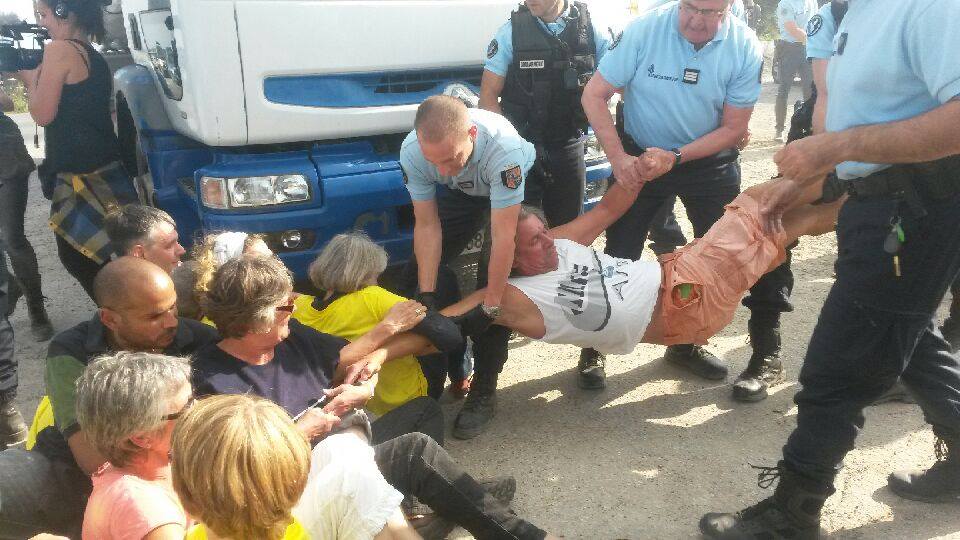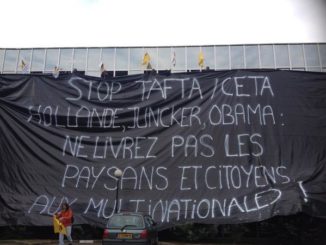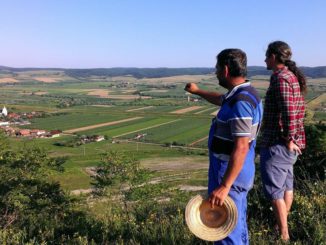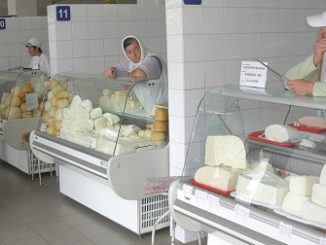
Urgenci’s Judith Hitchman outlines the recent 1000 cows story in France, a story of protest, occupation, and some success so far.
France has traditionally been a country that produces and consumes a great deal of dairy produce (it boasts between 350 and 400 different cheeses), mainly based on traditional family-run farms. But these are under increasing threat from industrial agriculture, in spite of much lip-service paid by the various members of France’s socialist government to sustainability and environmentally-friendly policies.
The 3-year history of this project is that of M. Ramery, a local construction industry mogul, who decided to bring together several large-scale dairy farms in a single 1000-cow + 750 calf unit, linked to the largest anaerobic digestion unit (methanation unit) in the whole of Europe, of a projected size of 1.5 MW. Milk from the farm is planned to be sold to Senoble, one of France’s biggest industrial dairy processing companies. Planning permission to build the farming unit was granted after an environmental impact study report concluded that in spite of much local opposition the project should be given the go-ahead.
The strong opposition to the project by Novissen, the local residents and farmers opposition group and the Confédération Paysanne (the French branch of the Via Campesina) has always been based on four different factors.
The environmental aspects: 1000 cows would be far more environmentally sustainable affair if they were run as 20 different 50-cow pasture-fed herds, providing 20 small-scale producers and their farm workers with an on-going livelihood. The scale of methanation of this project would require 2700 hectares to spread the 40 000 tonnes of sludge produced every year. And sludge smells bad…imagine how many villages in the region would suffer from air pollution as a result?
Secondly, political. There has been no respect of democracy or of the general interest of local populations: And the local population has expressed massive disapproval of the project.
Thirdly, the issue of animal welfare is central here. This many cows in a cramped industrial production unit are not compatible with animal welfare, and also cause an increased risk of disease and epidemics.
And finally economic: this farm benefits from subsidies that would be better spent supporting small-scale producers.
Planning permission was granted in early 2103, first for 500 cows, then a month later for a further 500. It was maintained in spite of two subsequent attempts to overthrow it.
This permission failed to respect the environmental regulatory requirements in terms of the requisite area for spreading sludge. But the size itself was made legally possible by the fact that milk quotas would no longer exist in 2015.
The Confédération Paysanne carried out two separate occupations of the farm: the first in September 2013, the second in May 2014. During the first, machinery was immobilised. The second was far more active, as several machines were actually dismantled, and parts removed. The “willful destruction” of these machines is estimated by the owners at around 100,000€. Five members of the Confédération Paysanne were arrested, and nine people are due to stand trial at the end of October in Amiens.
A few days ago, in the middle of the night, 150 cows were smuggled into the factory farm, and production began. But the activists blockade of the farm prevented milk from being brought out of the farm and delivered to the Senoble dairy processing plant. Their demands are simple: they are requesting a fresh environmental, social and economic impact study on increasing the size of the herd, and the reduction of the methaniser from the planned 1.5 MW to 0.6 MW.
On September 16th, the French government decided to intervene. Stéfane Le Foll, Minister for Agriculture received a delegation from the Confédération Paysanne, as well as the Prefect of the Essonne region, where the farm is situated.
The local farmers seem to have won the day for the moment, with Le Foll declaring that “Although the farm respects legal norms, it does not fit with our government’s vision”.
Ségolène Royale, Minister for the Environment has also stated that it is not in phase with government policy on the environment and renewable energies. The methanation will now use only slurry and agricultural crop waste, rather than growing dedicated crops as originally planned. The farm will be limited for now to a maximum of 500 cows, for which permission has been granted. The owner will need to submit his requests to increase the herd size to 1000 to the Préfecture for authorisation.
More:
All Arc2020 posts on industrial farming





2 Trackbacks / Pingbacks
Comments are closed.